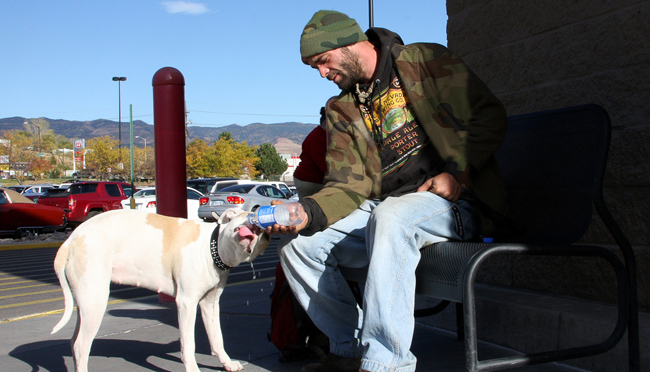As a Friend or Family Member, How Can You Help Veterans Suffering with PTSD?
In the course of my business as a Realtor I’ve had the honor of working with a good many Veterans, and on more than one occasion a Veteran client has informed me that they are suffering from PTSD. In each instance I’ve had the impression that these folks felt they had something to apologize for. This is definitely not the case.
PTSD strikes uninvited and without warning as a result of trauma. According to SIDRAN Institute, research suggests that prolonged trauma may actually disrupt and alter brain chemistry leaving its victims with mental, emotional and physical shock.
As a friend or family member there are ways you can help, and a few things you should avoid. One of the most important ‘DO’s’ is to manage your own stress. It’s never helpful to add to another’s discomfort. Often sufferers of PTSD can’t or won’t seek help so it’s up to you to remain unruffled, even if that means joining a support group or seeking the counsel of a therapist for yourself.
How Can You Help Friends and Family Members Suffering with PTSD?
 Helping a family or friend reintegrate into society after experiencing excessive pressure and uncertainty is complicated, but when your loved one has PTSD, it can be even more precarious. To date, an estimated 400,000 service members live with invisible wounds including combat stress, depression, and post-traumatic stress disorder (PTSD). According to a report released by the Institute of Medicine, 47 percent of veterans diagnosed with PTSD after serving in Iraq and Afghanistan, did not receive treatment. Wounded Warrior Project® (WWP) believes it is imperative to raise PTSD awareness and offer education in our local communities.
Helping a family or friend reintegrate into society after experiencing excessive pressure and uncertainty is complicated, but when your loved one has PTSD, it can be even more precarious. To date, an estimated 400,000 service members live with invisible wounds including combat stress, depression, and post-traumatic stress disorder (PTSD). According to a report released by the Institute of Medicine, 47 percent of veterans diagnosed with PTSD after serving in Iraq and Afghanistan, did not receive treatment. Wounded Warrior Project® (WWP) believes it is imperative to raise PTSD awareness and offer education in our local communities.
“PTSD is a normal reaction to a very bad situation, and no one should be ashamed of suffering and seeking help,” said John Roberts, WWP warrior relations director. “Combat veterans need to know that PTSD does not have to be a lifelong sentence. It can be treated and managed. Life can be better.”
Here are some tips for helping warriors who are coping with PTSD:
– Let Veterans determine what they are comfortable talking about, never pry.
– Bring Veterans to a peaceful place, or suggest deep breathing exercises when the stress seems overwhelming.
– Encourage creative outlets like journaling to help Veterans clarify what is bothering them most and guide them in the direction of a solution.
– Avoid unhealthy habits as ways to solve problems. Alcohol and drug use make things worse in the long run.
– Stay aware of your surroundings. Crowds, trash on the side of the road, fireworks, and certain smells can be difficult for Veterans coping with PTSD.


